Practical Action will attend three key events in Latin America this October that will contribute to the discussion and decisions to be made at COP28. We’ll share our experience centring community participation and leadership to address climate change, poverty, and inequality.
Join us at the Latin America and Caribbean Climate Week, the Latin American and Caribbean Network of Environmental Funds Congress and the Global Development Conference on Biodiversity and Sustainable Development.
Rising temperatures, rising urgency
Leaving a trail of significant impacts across Latin America, the repercussions of climate change are rapidly unfolding. The increasing frequency and severity of floods, fires, droughts, and other extreme events cast a long shadow over the region’s resilience. The first quarter of 2023 alone has seen Latin America grappling with an array of climatic extremes, including heatwaves and droughts in the Amazon Forest, the destructive forces of Cyclone Yaku alongside heavy rains and mudslides in Peru and Ecuador, increasing wildfires in Bolivia, among others.
Experts assert that these occurrences are not isolated incidents but rather part of a concerning trend exacerbated by the broader impact of the global rise in temperatures. The effects are felt on multiple fronts, with severe implications for food and water security, human health, and livelihoods. Still, it is especially felt by those who, because of their vulnerability, are less prepared to cope, such as indigenous communities and women. As Latin America navigates the brunt of these impacts, the need for immediate and decisive climate action becomes more apparent.
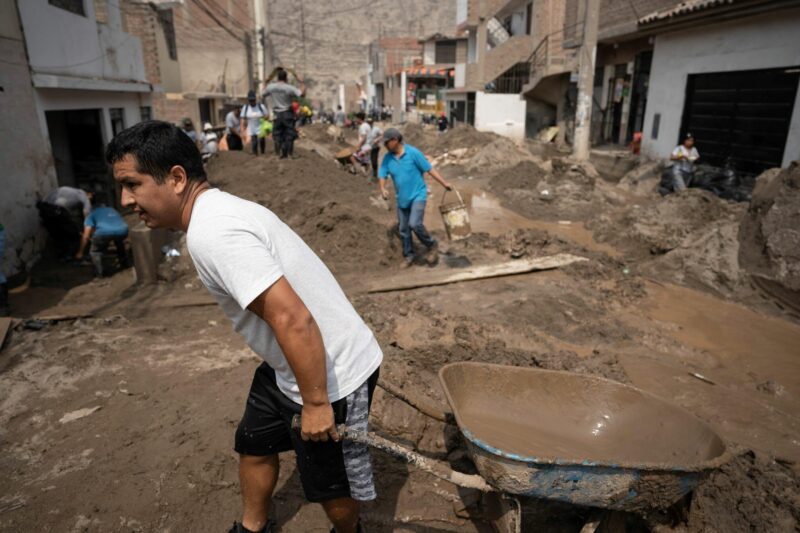
Working together to create a thriving future
Latin America faces growing pressures, where climate change is intertwined with the region’s ongoing struggles with poverty and inequality. To build a sustainable and resilient future, the need for collaborative efforts to address these challenges is urgent. So far, these have taken the form of the promotion of nature-based solutions as well as climate change policies such as a halt to deforestation. The key challenge is that too many of these are small-scale initiatives that don’t translate into action due to a lack of resources.
But the complexity of the issue requires a bolder response. Efforts and funding are primarily directed to mitigation to achieve the region’s climate commitments. As countries with high vulnerability to climate impacts, adaptation and the opportunities it can bring must have a greater focus.
We’ll advocate for community-driven solutions at the Latin America and Caribbean Climate Week, the Latin American and Caribbean Network of Environmental Funds Congress and the Global Development Conference on Biodiversity and Sustainable Development. Contributing to the countries’ national efforts and plans, these initiatives have already proven to transform systems, empowering people to cope with environmental and economic challenges and flourish.
Join us in this crucial time for decisive action and explore the impactful projects redefining pathways throughout Latin America.
Creating opportunities to anticipate and respond to climate disruptions
.
Empowering communities to be at the centre of the design and implementation of actions and policies is an effective, just and sustainable path to reducing the risks of climate events. Therefore, Practical Action works closely with communities, connecting them to governments and institutions at a local and national level, leveraging their expertise.
A great example of this work is our work with the Zurich Climate Resilience Alliance. With this Alliance, we have successfully driven a decade-long programme in Peru and Bolivia, in which building resilience has been achieved through a deep engagement at the community level. In Peru, initiatives, such as the Participatory Rainfall Monitoring Network, reach over 450k people with early warning systems expertise recognised by the government. This impacts over 9.3 million people in the Rímac river watershed, which flows across the capital.
In recent years, we are complementing early warning with early action. We are working with the Swiss Development Cooperation to promote anticipatory action approaches that allow humanitarian action to occur before an event occurs. In this way, working with sub-national and national governments based on community-driven solutions, we reduce the impacts of hazards in Ecuador, Peru and Bolivia. In addition, we take our learnings on resilience building and national policies further, as we are currently doing with USAID’s Bureau for Humanitarian Affairs, to reach more than 40k people in northern Peru to be better prepared for risks.
Within these examples, the growth of communities in strength and unity is evident. It inspires future efforts to address climate change issues, creating a world where floods do not negatively impact people and businesses’ ability to thrive.
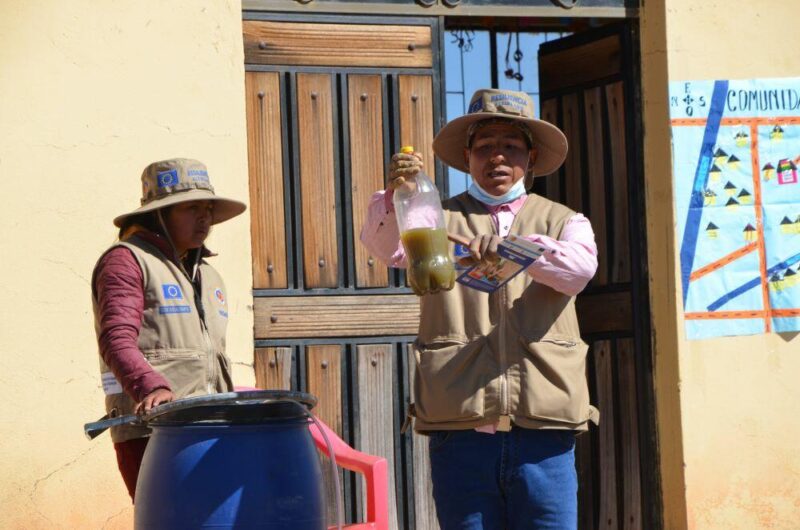
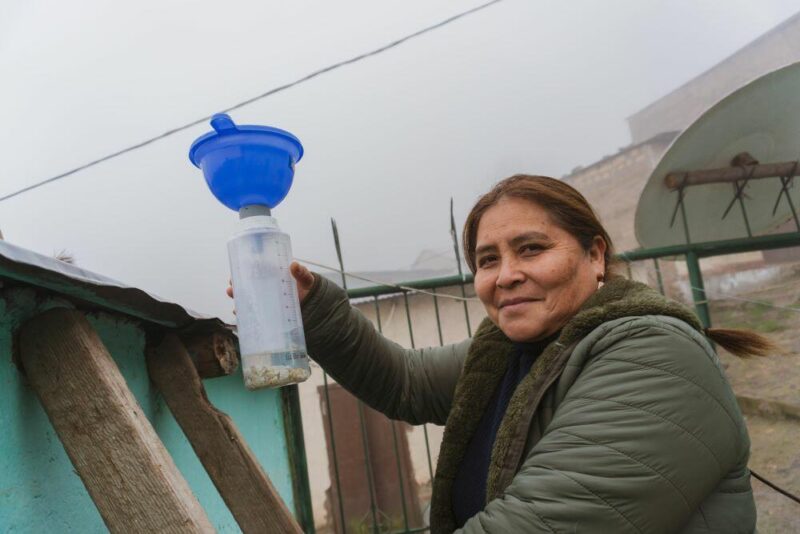
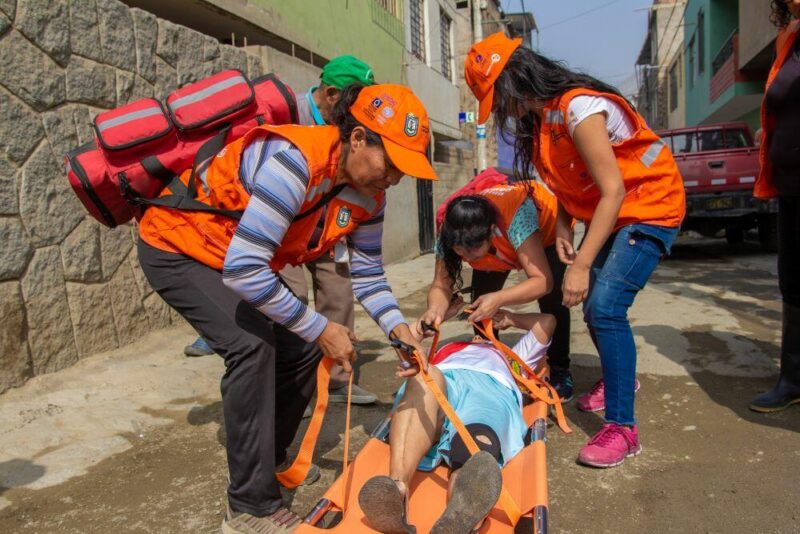
Hope can grow in trees (if we take action now)
.
Ecuador, Bolivia, and Peru, three countries intertwined by the vast Amazon rainforest, collectively face the threat of losing more and more of this biodiversity marvel every year. The menace is not solely a result of extreme weather events increasing due to climate change; it’s also an outcome of rampant deforestation, which, unfortunately, the region leads globally. Climate change and deforestation create a vicious cycle where people and the planet both lose.
This region is a tapestry of diverse indigenous peoples and local communities grappling with economic hardships and a lack of access to fundamental services. Therefore, it is crucial to explore alternatives of development coherent with the indigenous peoples’ vision, which can ensure prosperous, sustainable futures. Without proactive action, the trajectory of our shared future risks perpetuating historical inequities, closing doors to essential leadership and knowledge needed to tackle the escalating climate crisis. In response to this urgent call, Practical Action actively collaborates with government bodies, indigenous peoples, local organisations, and the private sector in Latin America to curb deforestation and boost the integrity of forests.
We work with governments to enhance how they measure and report their emissions in the forestry and agricultural sectors. This is crucial in establishing and monitoring progress against countries’ climate action plans and sustainability goals. In Bolivia, for example, we link forest conservation and climate change adaptation with local environmental promoters within three Tacana communities. The results significantly improved businesses such as coffee and cacao and increased local biodiversity. We observed a similar effect in Peru when working with the San José de Lourdes farmers, whose crop areas overlapped a biodiversity hotspot.
At Practical Action, we not only believe in the feasibility of this vision; we see it happening in our programmes. Nevertheless, the magnitude of the challenge emphasises the need for increased adaptation efforts and funding to ensure such initiatives can continue sowing great success and reaching more people across the region.
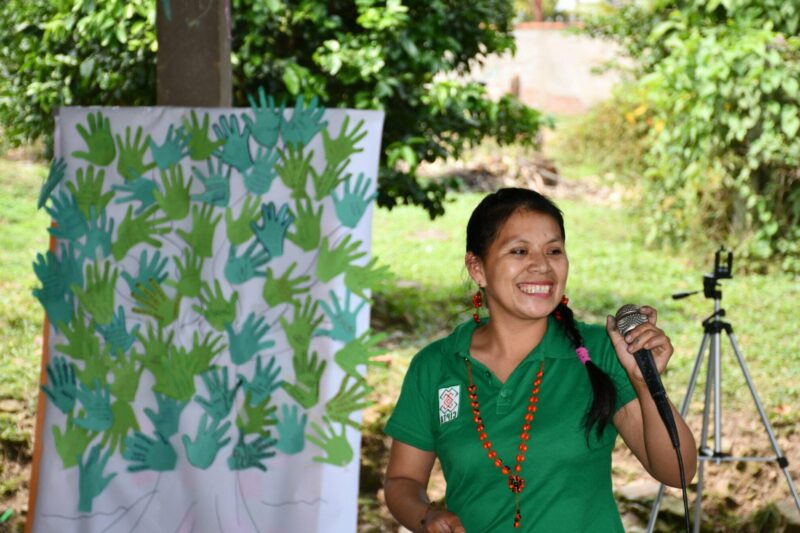
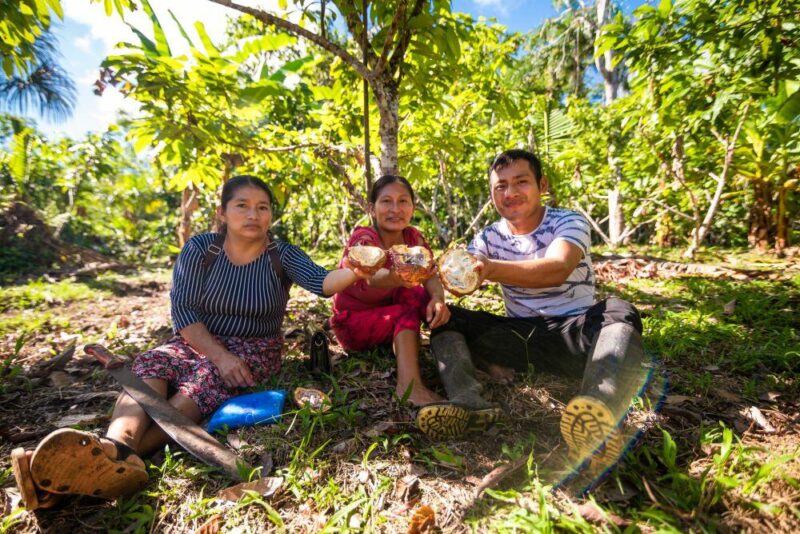
What needs to change to address the future strategically?
As Latin America grapples with the escalating impacts of climate change, the need for urgent action is clear. The interconnected challenges of extreme climate events, poverty, and inequality require a united front from governments, civil society, businesses, and individuals. At this crucial time, Latin America requires a collective commitment to an environmentally sustainable and socially just future.
As these events and COP28 approach, we have a clear message to share in the words of E.F. Schumacher, our founder: “To talk about the future is useful only if it leads to action now”. This motivates us to continue advocating for action that brings about a future full of equal, resilient and thriving opportunities for all. And we trust we can count on you to achieve it.
For business development enquiries in Latin America, please contact:
- Walter Ita, BD Head for Latin America: [email protected]
- Shirley Pazos, BD Coordinator for Latin America: [email protected]
For media enquiries in Latin America, please contact:
- Gabriela Ramos, Communications Manager for Latin America: [email protected]